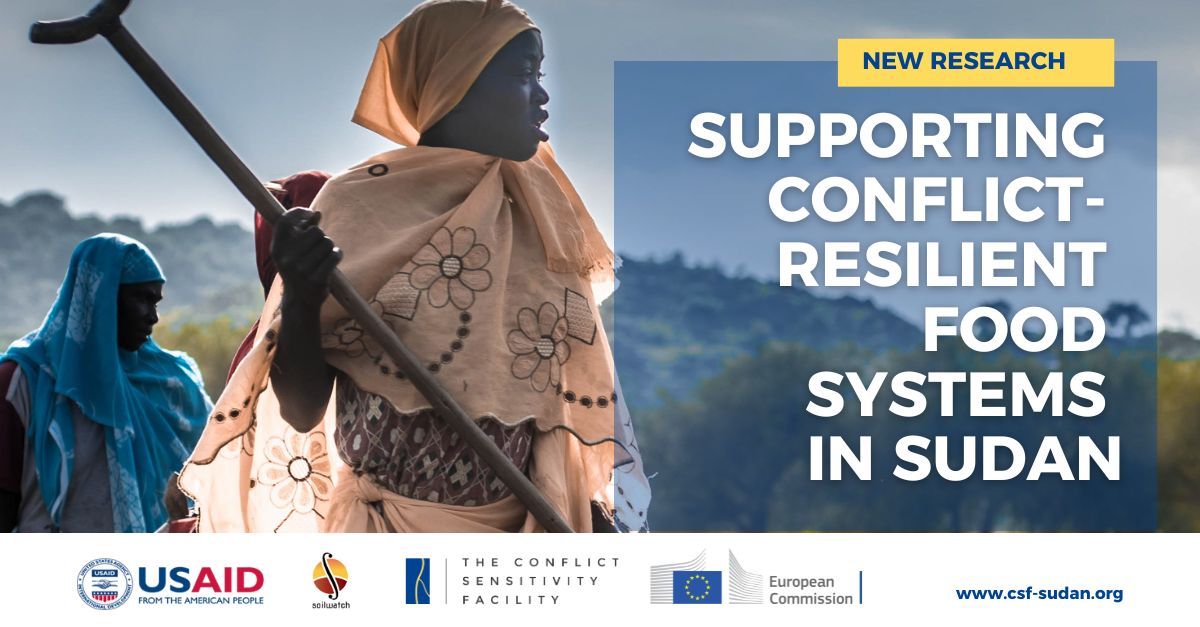
After 18 months of conflict in Sudan, famine has been confirmed in North Darfur while over 14 other areas are at high risk of famine. Meanwhile, more than half of the country’s population – 25.6 million people – are facing crisis levels of hunger.
With the aid sector scaling up its response, those designing, funding and implementing food security programmes must ensure they contribute to conflict-resilient food systems in Sudan. This is not only essential to avoid feeding into underlying drivers of inequality and conflict rooted in Sudan’s agricultural system but to also reduce humanitarian needs in the long-run.
In this context, the Conflict Sensitivity Facility (CSF) in Sudan is launching Supporting conflict-resilient food systems in Sudan. Written by Soilwatch and developed with the support of USAID TEPS and the European Commission, the paper unpacks Sudan’s food systems, explains how they have been impacted by the conflict and sets out how they can be supported in a conflict-sensitive way going forward.
The paper also offers a series of recommendations for donors and aid actors, highlighting that the famine response and support for food production must:
Read the entire report here: Supporting conflict-resilient food systems in Sudan.